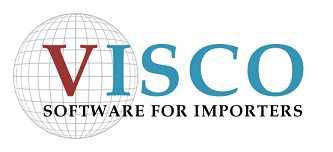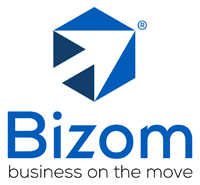Description

ShipCompliant

VUE
Comprehensive Overview: ShipCompliant vs VUE
ShipCompliant is a comprehensive solution developed by Sovos, designed to meet the unique regulatory compliance needs of the alcohol beverage industry. The platform primarily focuses on streamlining compliance processes for companies involved in the production, distribution, and sale of alcoholic beverages.
a) Primary Functions and Target Markets
Primary Functions:
-
Regulatory Compliance Management: ShipCompliant provides tools to help businesses adhere to varying state and federal alcohol regulations, including tax reporting, license management, and product registration.
-
Direct-to-Consumer (DTC) Shipping: The platform offers solutions to manage the complexities of shipping alcohol directly to consumers, addressing legal requirements and simplifying logistics.
-
Three-Tier Distribution: ShipCompliant facilitates compliance and reporting for businesses operating within the traditional three-tier alcohol distribution system.
-
Product Registration: It helps with the electronic submission and management of product registrations and reports with different regulatory bodies.
-
Tax Compliance: Automated calculations and submissions of excise taxes and other related duties ensure accuracy and timeliness.
Target Markets:
- Wineries: Assists wineries in managing DTC shipping and compliance at both state and national levels.
- Breweries: Helps breweries navigate the complex environment of distribution and compliance.
- Distilleries: Facilitates compliance and reporting needs for distilleries, particularly those dealing with multiple states.
- Importers and Distributors: Supports compliance for those who manage logistics and distribution of imported beverages.
b) Overall Market Share and User Base
ShipCompliant is one of the leading players in the niche market of alcohol regulatory compliance software. While specific market share and user base data may not be publicly disclosed, the solution is highly regarded due to its comprehensive features and robust compliance support tailored for the alcoholic beverage industry.
-
User Base: The user base consists of major enterprises, small to mid-sized wineries, distilleries, breweries, and importers. Its clientele includes some of the large names in the industry owing to its reputation and comprehensive service offerings.
-
Market Share: ShipCompliant is a specialized solution; thus, while it might not compete in broader enterprise software markets, it holds a strong position within the alcoholic beverage compliance niche due to its industry-specific focus and capabilities.
c) Key Differentiating Factors
-
Industry Specialization: ShipCompliant is specifically tailored to the alcohol beverage industry, providing detailed, industry-specific compliance solutions that generic software cannot match.
-
Comprehensive Compliance Features: It covers an extensive range of compliance needs, from tax reporting to DTC compliance, tailored regulations, and registration processes including integration with state regulatory systems.
-
Established Industry Relationships: ShipCompliant has built significant relationships with regulatory bodies, which allows for seamless electronic submissions and up-to-date regulatory information.
-
Scalability and Flexibility: Its solutions cater to both small producers and large scale distributors, offering flexible options to scale as businesses grow or enter new markets.
-
Integration Capabilities: It offers APIs and integrations with popular e-commerce platforms and CRM systems, streamlining operations for businesses already using these tools.
In conclusion, ShipCompliant is a specialized software solution designed to navigate the complex regulatory landscape of the alcohol industry, offering tailored compliance management tools with a robust industry focus. Its market penetration is strong within its niche, providing significant value to a dedicated user base that demands regulatory precision and efficiency.
Contact Info

Year founded :
2000
+1 888-449-5285
Not Available
United States
Not Available

Year founded :
2003
Not Available
Not Available
United Kingdom
Not Available
Feature Similarity Breakdown: ShipCompliant, VUE
Certainly! ShipCompliant and VUE are both software solutions aimed at different sectors of compliance and management, although they may overlap in certain areas. Here’s a breakdown of their features and how they compare:
a) Core Features in Common:
Both ShipCompliant and VUE offer features that are generally centered around managing compliance and operational needs, though they are designed for different industries. Here’s where they might overlap:
-
Compliance Management: Both platforms provide tools to manage and ensure compliance with industry regulations. ShipCompliant focuses on the beverage alcohol industry, while VUE typically handles areas such as insurance.
-
Reporting and Analytics: Users can generate detailed reports and analytics to understand compliance statuses and operational metrics.
-
Data Management: Both platforms allow for the secure storage, management, and retrieval of necessary compliance-related documents and data.
-
Integration Capabilities: They can integrate with other business systems to share data and streamline processes, ensuring a comprehensive compliance solution.
b) User Interface Comparison:
-
ShipCompliant:
- Design: Typically features a user-friendly interface designed for ease of use within the alcohol beverage industry. It tends to have a dashboard that provides quick access to compliance alerts, reporting, and other critical functions.
- Navigation: Emphasizes streamlined workflows tailored to industry-specific tasks, such as license renewals and tax reporting.
-
VUE:
- Design: Offers a more generic interface that can be customized depending on the industry focus, often insurance. It tends to offer a modular approach, allowing users to activate different compliance and management features as needed.
- Navigation: Often presents a multi-functional dashboard with the ability to toggle between different compliance modules (claims, underwriting, etc.) relevant to the insurance industry.
c) Unique Features:
- ShipCompliant:
- Industry-Specific Tools: Tailored specifically for the beverage alcohol industry, offering features like three-tier compliance, direct-to-consumer (DTC) shipping compliance, and tax reporting specific to alcohol sales.
- Regulatory Updates: Regular updates on changes in alcohol regulations to ensure users remain compliant without having to manually track changes.
- VUE:
- Insurance Specific Capabilities: Offers features such as policy and claims management, underwriting workflows, and premium billing tailored to the insurance industry.
- Risk Management Tools: Includes advanced functionalities for managing risks and customer assessments specific to the insurance domain.
In conclusion, while ShipCompliant and VUE share core compliance management features, their strengths are particularly aligned with their respective industries—beverage alcohol for ShipCompliant and insurance for VUE. ShipCompliant’s industry-specific compliance updates and alcohol-focused reporting set it apart, while VUE shines with its insurance-specific functionalities like claims management and risk assessment tools.
Features

Not Available

Not Available
Best Fit Use Cases: ShipCompliant, VUE
ShipCompliant and VUE serve different purposes and cater to various business needs, primarily revolving around compliance and software development. Here's a detailed overview of their best-fit use cases:
ShipCompliant
a) For what types of businesses or projects is ShipCompliant the best choice?
ShipCompliant is a compliance and tax solution widely used in the alcohol industry. Its best fit use cases include:
-
Alcohol Manufacturers and Distributors: This includes wineries, breweries, distilleries, and importers who deal with complex regulatory requirements. ShipCompliant helps manage shipping compliance and ensures adherence to federal and state regulations.
-
Retailers and E-commerce Businesses in the Alcohol Industry: Online retailers that sell alcoholic beverages across state and international lines benefit from ShipCompliant’s tax calculation and compliance validation services.
-
Logistics and Shipping Companies: Companies that handle the distribution of alcoholic beverages and need to ensure their operations are legally compliant across jurisdictions.
d) How do these products cater to different industry verticals or company sizes?
-
Industry Verticals: ShipCompliant is tailored exclusively for the alcohol industry. Its features are specifically built to address the complex regulatory landscape of alcohol sales and distribution.
-
Company Sizes: ShipCompliant serves both small and large businesses in the alcohol industry. It offers scalable solutions that can cater to boutique wineries and craft breweries as well as large multinational importers and distributors.
VUE
b) In what scenarios would VUE be the preferred option?
VUE (short for Vue.js) is a popular JavaScript framework used for building user interfaces and single-page applications. Scenarios where VUE is preferred include:
-
Web Application Development: Teams building interactive web applications appreciate VUE for its reactivity, component-based architecture, and ease of integration with existing projects.
-
Projects Requiring Lightweight Frameworks: VUE is lightweight compared to other frameworks like Angular, making it a preferred choice for projects where performance and speed are crucial.
-
Progressive Integration: For businesses looking to incorporate a framework incrementally into existing projects or enhance parts of a legacy system without a complete overhaul, VUE offers a gradual integration path.
d) How do these products cater to different industry verticals or company sizes?
-
Industry Verticals: VUE is not limited to a specific industry vertical. It is versatile and used across technology sectors, e-commerce, finance, healthcare, and more; anywhere there’s a need for building dynamic and engaging web interfaces.
-
Company Sizes: VUE caters to startups and large enterprises alike due to its flexibility and scalability. It provides small startups the agility to quickly develop and iterate on their web projects, while large enterprises benefit from its ability to scale and integrate complex applications efficiently.
While ShipCompliant is specialized for compliance in the alcohol industry, VUE is a more general tool used for building web applications and can be applied across various industries and company sizes.
Pricing

Pricing Not Available

Pricing Not Available
Metrics History
Metrics History
Comparing undefined across companies
Conclusion & Final Verdict: ShipCompliant vs VUE
To provide a comprehensive conclusion and final verdict regarding ShipCompliant and VUE, we must first analyze the features, benefits, and drawbacks of each product within their respective contexts.
Conclusion and Final Verdict
a) Best Overall Value:
The determination of which product offers the best overall value largely depends on the specific needs and operational priorities of the user. If the focus is primarily on comprehensive compliance solutions for the alcohol beverage industry, ShipCompliant generally offers more tailored and specific solutions. Conversely, if VUE is oriented towards a broader set of functionalities, or if it serves another industry sector effectively, its value might be better for those specific cases.
b) Pros and Cons:
ShipCompliant:
- Pros:
- Tailored for the alcohol beverage industry, ensuring high levels of compliance with industry-specific regulations.
- Offers robust features for license management, tax calculations, and reporting compliance.
- Provides integration with major sales platforms, enhancing operational efficiency.
- Cons:
- May not be suitable or cost-effective for industries outside of its specialization.
- Users may find the system complex if they have minimal experience with compliance solutions.
- Higher costs might be involved compared to more generalized solutions.
VUE:
- Pros:
- Potentially broader applicability across different industry verticals, depending on its core strengths.
- May offer user-friendly interfaces and versatile features adaptable to various business needs.
- Could integrate well with existing business systems if correctly aligned to user needs.
- Cons:
- May not offer the same depth of compliance-focused functionalities as ShipCompliant for the alcohol industry.
- Might require additional customization or third-party integrations to match niche requirements.
- Limited specificity for highly regulated industries, which could lead to compliance risks if not adequately addressed.
c) Recommendations for Users Deciding Between ShipCompliant vs VUE:
-
Industry Focus and Regulatory Needs:
- Users within the alcohol beverage industry, particularly those prioritizing compliance management, should heavily consider ShipCompliant for its specialized features tailored to regulatory standards.
- Organizations in other sectors or those seeking flexibility across industries might benefit from evaluating VUE, assuming it aligns with their operational requirements.
-
Budget Considerations:
- If budget constraints are a critical factor, users should compare the cost-benefit ratio of both solutions in relation to their required core functionalities.
-
Integration Requirements:
- Assess current systems and platforms in use, and choose a solution that offers seamless integration with these existing infrastructures to enhance productivity and avoid operational silos.
-
Scalability and Future Needs:
- Evaluate long-term business goals and potential expansions; opt for the solution that offers scalable features to accommodate future growth without significant additional investment.
-
Trial and Feedback from Peers:
- Utilize trial versions if available, and seek feedback or case studies from similar businesses to understand real-world applications and any potential hurdles experienced by other users.
In summary, the choice between ShipCompliant and VUE should be guided by specific industry needs, regulatory requirements, budget, integration capabilities, and future scalability desires. Decision-makers should engage in a thorough assessment of these aspects relative to each solution to determine which product will provide the most value.



